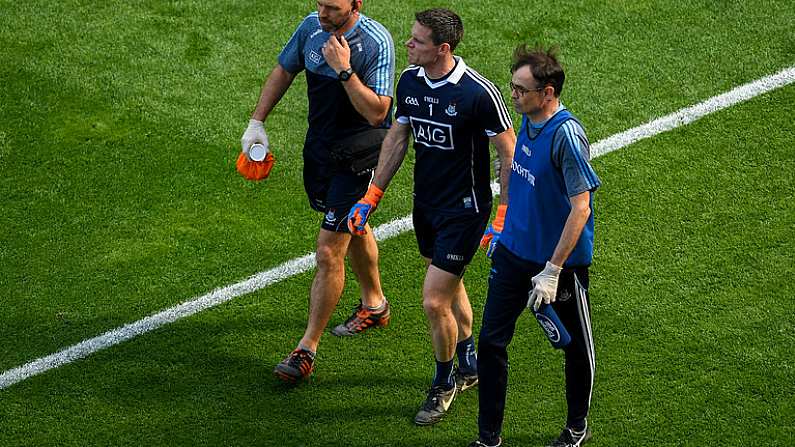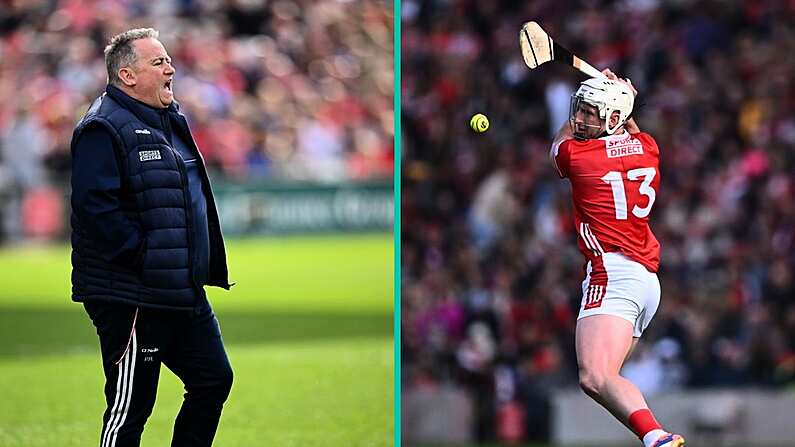During the routine Leinster semi-final win against Longford this afternoon, keen-eyed viewers noticed that Jim Gavin's Dublin appeared to use seven substitutes throughout the match - one more than the six teams in football are permitted.
With all six coming from the beginning of the second-half onward, the immediate outlier was the early substitution of an injured Stephen Cluxton. Replaced by designated 'temporary' sub Evan Comerford, the Ballymun Kickhams man played the remaining 55 or so minutes in goal for Dublin.
So, in what sense could this substitution have been deemed 'temporary'?
A relatively rare occurrence, this is not the first time an inter-county side has taken advantage of a GAA loophole that appears to require serious reconsideration.
Writing for the Irish Independent in 2015, Martin Breheny outlined the need to reconfigure "the blood sub regulations and their bizarre implementation."
Describing a Kerry and Mayo clash, Breheny demonstrated how it was the Connacht men who had benefited from the inconclusive nature of when a 'temporary' substitute becomes permanent:
Mayo corner-forward Evan Regan crashed heavily onto the ground ... before being carried off and taken to hospital to be assessed for a collarbone injury and concussion.
The official reason for his departure was 'blood injury'. He was replaced by Michael Conroy and, since there's no time limit for a blood sub, Mayo were deemed to have made no optional substitution until Diarmuid O'Connor arrived in the third quarter.
They later filled the allowed quota of six optional substitutions but, effectively, had made seven changes.
Curiously, it was all perfectly legal.
Consult the GAA's Referee's Handbook, and the absurdity of this oversight becomes clear:

Initially, it is outlined that temporary substitutions are permitted in accordance with the Blood Injuries Rule.
When it later comes to dealing with the protocol surround this temporary substitute, the confusion begins:

At no point throughout the instructions provided for referees does it state what should occur if the injured player who has been replaced by the temporary substitute fails to return to play.
Compounding the confusion further still, the Blood Injuries Rule makes no obvious case for what is to occur if - like Cluxton today - a player is forced to depart (temporarily, or otherwise) due to an injury unrelated to the presence of blood.

Although today's result was not in the slightest impacted by the inefficiency of this ruling, and Dublin themselves simply played along with it, there is little doubt that sooner rather than later, the GAA will need to determine a clearer understanding of the 'temporary' sub, and their potential permanence on the field of play.












